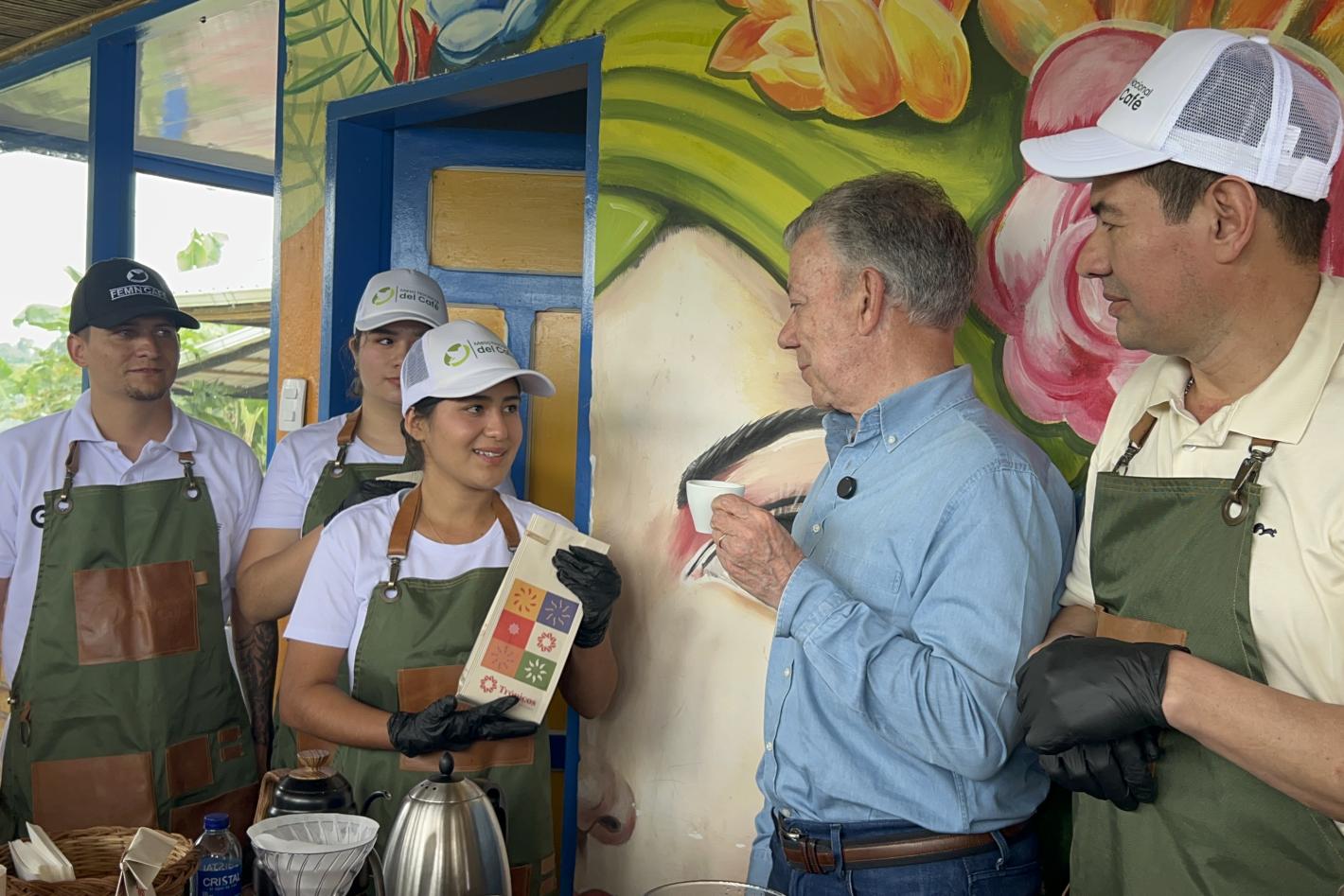150 people, including ex-combatants and inhabitants of the communities surrounding the TATRs located in Chocó region, have validated their elementary and high school studies.
The Norwegian Refugee Council – NRC, the National Open and Distance University – UNAD and the Colombian Foundation of ex-combatants and Peace Promoters -FUCEPAZ, in agreement with the Ministry of Education, implement the "Forging the Education" program that aims to teach primary and secondary education to the former FARC combatant population and the population of the communities near the Territorial Areas for Training and Reintegration – TATR. The program has been implemented since August 2017 and, according to figures from the Ministry of Education, approximately 3,500 former combatants have been reached and 3,200 people living in neighbouring communities of the TATRs.
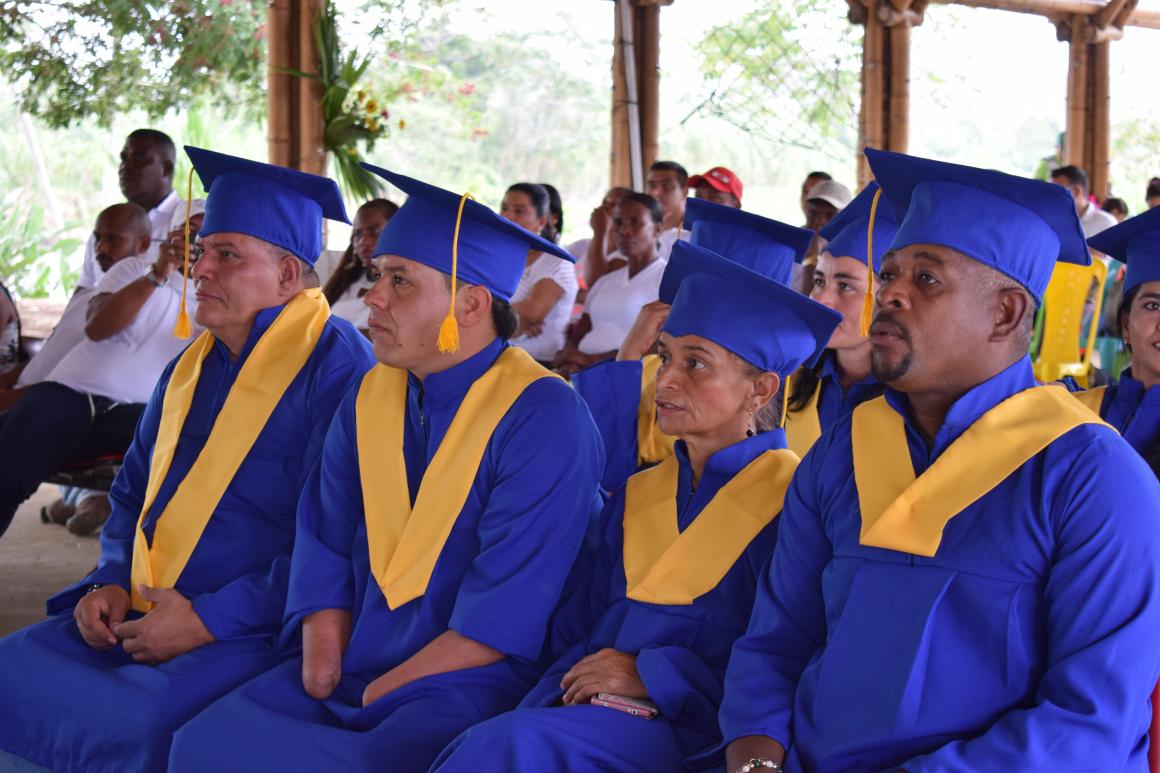
In Chocó department, the program adapted the "Ethno-Educational" model, specifically targeting the Afro-Colombian population. At the moment, this model has been applied at Brisas TATR, Carmen del Darién and Vidrí TATR in Antioquia, limits with Chocó. "This Ethno-educational model is pilot and the experiences that come out of this process will be adapted to deliver the ethno-educational model to Chocó educational institutions " says Adriana Adarve, coordinator of the NRC , from Brisas TATR Theatre in Carmen del Darién - Chocó, where the graduation ceremony was held for 25 former FARC combatants and 114 people from the communities surrounding the TATR: Brisas, Camelias and Iguanas who validated their elementary and high school studies.
"To finish my high school studies was a dream that I always wanted to come true" says Maria Muñoz, a former FARC combatant who is going through her reintegration process in Carmen del Darién, Chocó and who wants to continue training in sewing and agriculture.
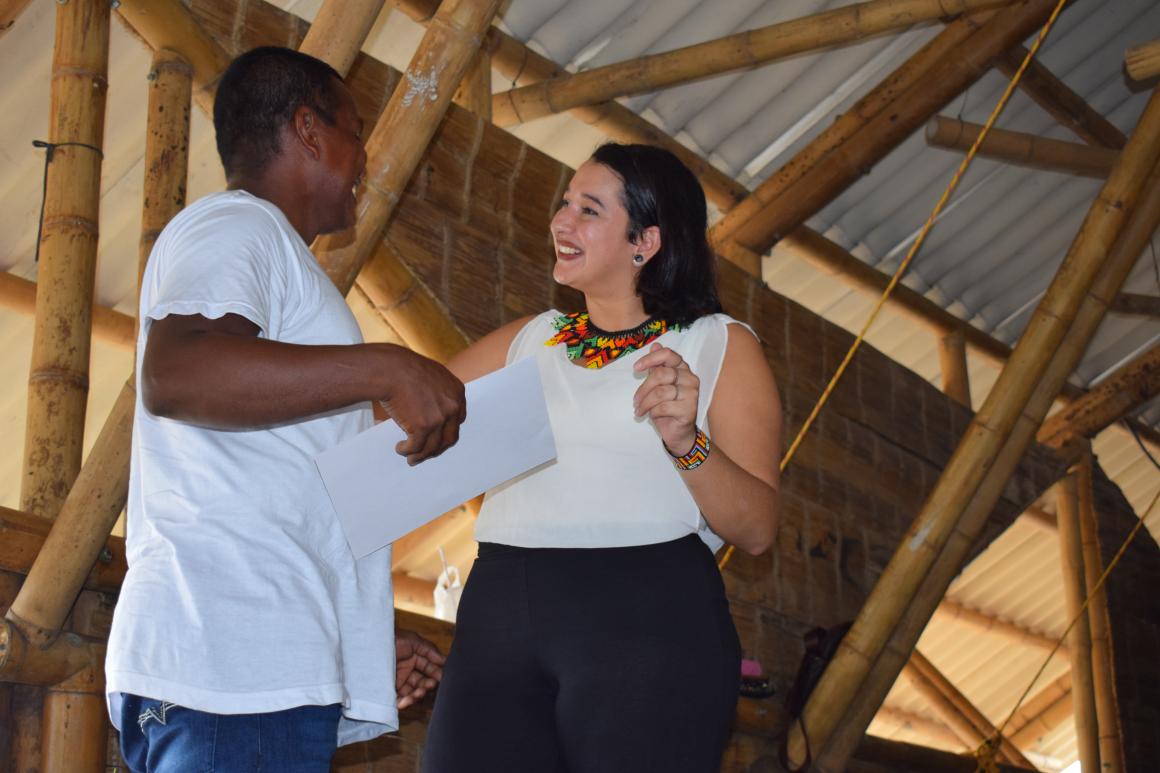
On the other hand, in the TATR of Vigía del Fuerte, Antioquia, 12 people graduated, among former combatants and inhabitants of the communities, who expressed their desire to continue studying higher education in the city of Quibdó.
According to the teacher Indira Palomeque working on this project has been satisfactory because "the ex-combatant community is realizing that through education, social harmony and dialogue, peace can be consolidated".
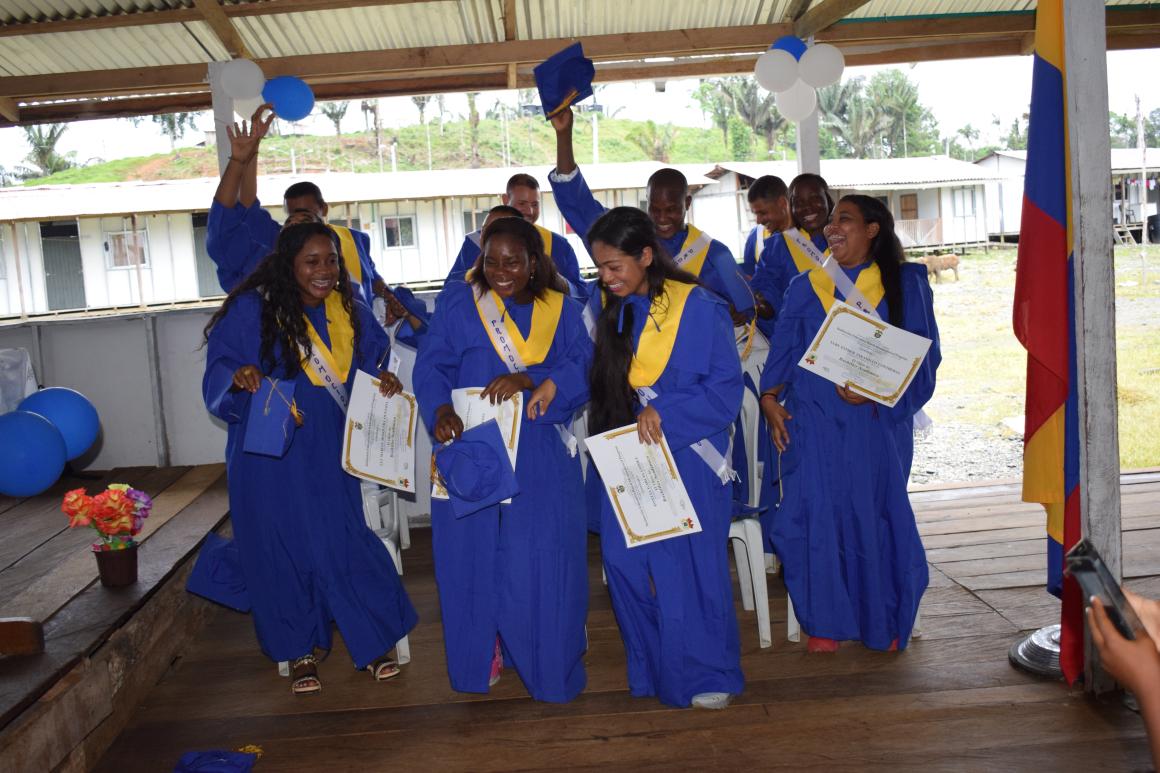
Currently, FARC and its ex-combatant population and the population of communities close to the 26 TATRs hope that the program "Forging the Education" continues so that through education, the process of reintegration and reconciliation in the communities that have suffered the most from the armed conflict can be consolidated.
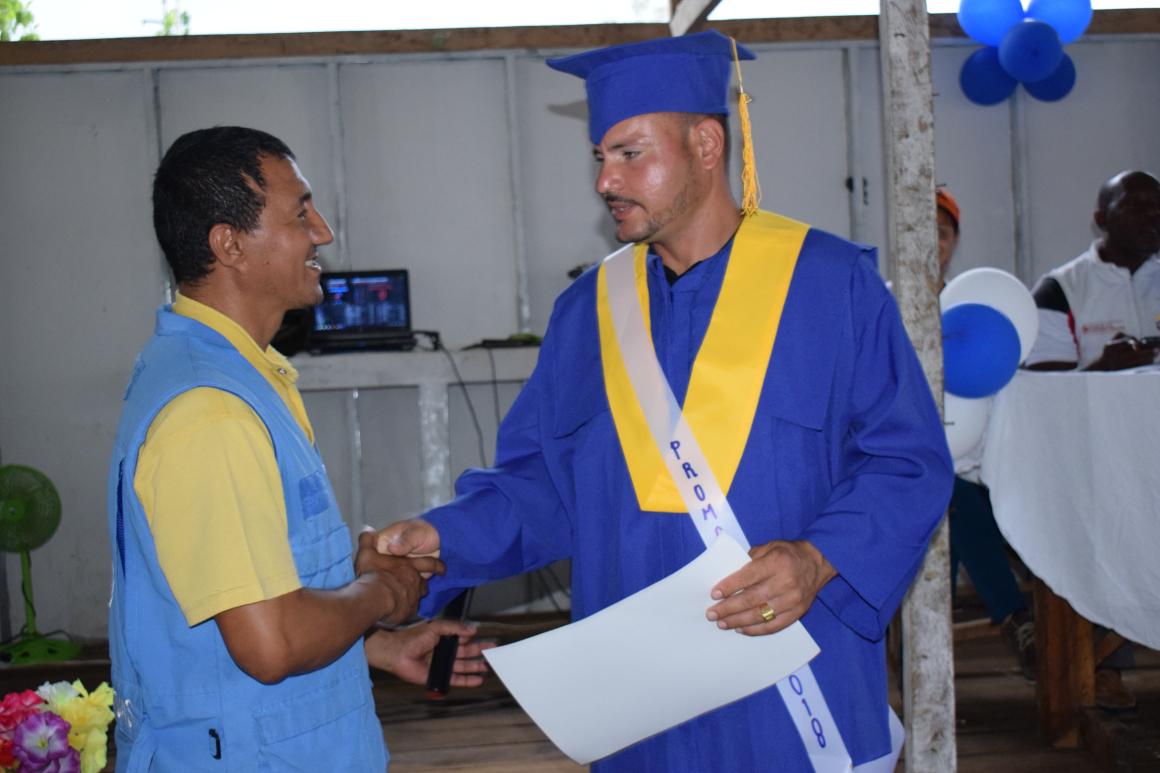
By: Jeniffer Moreno, Public Information Officer - Quibdó Regional.
UN Verification Mission in Colombia.



